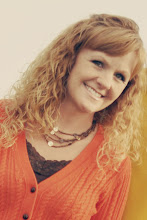It is a commonly repeated phrase, "Two things I never discuss: religion and politics." I was thinking about this the other day, and wondering, is this a 'new' or modern viewpoint or has it always been customary to avoid these topics in public conversation? Being a sociologist by both trade and hobby, I had to examine this phenomenon. Turns out, discussion of religion and politics is a fairly new faux pas. Ah, yes, what was I thinking? Political correctness! Whereas it used to be customary for people to share different positions on God and the State, now it is inappropriate and untactful in nearly every setting.
Ancient civilizations all over the globe considered debate essential to the human condition. Education in logic (not mathematical logic, but critical thinking in a broader sense) began in late primary years, and was followed by extensive education in the grammar of Rhetoric, what some would call speech or debate today. Great minds would meet in the public square and reason their ideas for hours. Theologians would gather in the temple and reason from the scriptures for days. Philosophers would wonder from town to town teaching in the streets their ideas, asking peoples to consider new thoughts and ideas, and what shaped them.
This begs the question, how does one ever get to fully develop a viewpoint if they are never to hear any differing ones? I do know some exceptional humans who make a point of exploring various spiritual and political perspectives, but in all honesty, they are a rare exception. Most of us gather our opinions and life view from our parents. As we grow, school becomes our largest influence, and we may garner some additional ideas from our friends. While employers may have some influence, college probably has the largest and most powerful impact on our perspective. Certainly this was my experience. And it is disconcerting for me, as colleges in America are the most liberal institutions in the world. Even the reading has been dumbed down, modified to avoid offending certain peoples, scrubbed of ideas that go against the single-minded viewpoint of the establishment. The professors are unabashed about their intolerance of the traditional, conservative foundations upon which this nation was laid. I was young enough in college that I simply accepted their point of view as fact, and rarely thought more about it. Later, as I matured, I began to hear about and learn other ideas.
My fear as I observe our cultural changes is that my children won't have any opportunity to enter into a debate of ideas because it is no longer acceptable to debate. And since our culture is quickly moving away from any concept of God or faith, the only viewpoint left will be man's viewpoint. Given enough time, the 'polite' method of avoiding politics and religion in any discussion will ensure that not one more human being will get to hear about Jesus Christ and the gift He gave the world with His death. Additionally, anyone who would like to learn about our country's grand heritage of say, The Constitution, would likely be called a dinosaur or an intolerant for straying from the popular viewpoint.
Hmmmm. I want to be optimistic about our future. I would prefer to rejoice in considering the countless joys awaiting the next generation. As I teach my children and prepare them for the Great Conversation, I wonder, "Is that conversation over?" As I watch our economy crumble, our moral fiber disintegrate, and our characters weaken, I cannot help but speculate. The Law of Entropy, the Second Law of Thermodynamics, simply stated, is that things become more disordered over time, unless acted upon by another, more powerful force. We have become passive participants in our political and religious life. Therefore, if nothing is done, chaos is inevitable.
So the next time you see me at a social gathering, don't be surprised if I say, "You'd like to discuss politics and religion? Why of course!"
Saturday, December 11, 2010
Subscribe to:
Posts (Atom)
